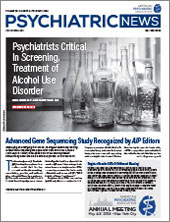In the three years since the FDA
cleared the EndeavorRx video game (developed by Akili) for the treatment of attention-deficit/hyperactivity disorder (ADHD) in youth, research into digital ADHD interventions has diversified, expanded, and matured. So remarked Stephen Faraone, Ph.D., at the 2023 annual meeting of the American Academy of Child and Adolescent Psychiatry (AACAP) in New York.
“I’ve played some of the new products, and they are compelling on the surface,” said Faraone, a distinguished professor and vice chair of research of psychiatry and behavioral sciences at SUNY Upstate Medical University in Syracuse, N.Y. But can use of these tools lead to meaningful changes for young people? Faraone was part of a panel of researchers at an AACAP session that explored this question.
Clinically, the goal of therapeutic video games is to target circuits that are known to be compromised in youth with ADHD (for instance, working memory circuits). While such cognitive training has been shown to improve performance on attention and memory tests, it has not translated to visible improvements in measures such as academic performance. Even Akili’s game
received FDA clearance based on participants’ improvements on a research-focused metric known as TOVA (Test of Variables of Attention) and not clinical improvements in symptoms.
Jennifer Crosbie, Ph.D., an assistant professor of psychiatry at the University of Toronto, noted that developing a therapeutic video game is complicated by the fact that effective cognitive training demands time and attention—which can be off-putting to some kids.
Crosbie has conducted many focus groups with families interested in therapeutic video games and found consistent themes expressed by youth and parents alike: “The parents want something portable that does not require Wi-Fi, so it’s accessible anytime. The kids want variety, short run times, and more rewards.”
Her lab has been working with game developers on a smartphone game package called
Mega Team that tries to balance neuroscience-based training techniques with kid expectations. Mega Team includes four separate reflex-based mini games that target different aspects of executive function. She noted that the game concepts were designed with input from kids.
She presented some findings from a research study that compared youth with ADHD or autism (168 and 61, respectively) who played five weeks of Mega Team (five days a week for 25 minutes a day) with those who played a set of control games. As anticipated, the children who played Mega Team showed greater improvements in laboratory tests of inhibition control after five weeks than those in the control group. The parents of the children who played Mega Team also reported greater improvements in the children’s attention and hyperactivity than the parents of those playing the control games.
Crosbie acknowledged that the parents were aware of the interventions that their children were playing, which may have impacted the findings. However, a small sample of teachers who were unaware of the game assignments and completed a follow-up questionnaire after six months reported greater symptom improvements in the youth who played Mega Team than those who played the control games.
Passive Monitoring Shows Promise
An attention-monitoring wearable may also provide benefits for youth with ADHD, said Margaret Weiss, M.D., Ph.D., an associate professor of psychiatry at Harvard University and director of the Neurodiversity Center at Cambridge Health Alliance. Weiss helped to develop a device called
FokusRx that provides periodic prompts via vibrations or text messages to help children regain focus or stay on task. The AI-guided software initially selects times for prompting based on a child’s school schedule, which can be entered by a parent in a mobile app. Over time, the software tracks the child’s responses to the prompts as well as passive cues like fidgeting or pacing to develop more personalized prompting.
“Basically, it’s the nagging mother or annoying teacher technique of improving attention,” Weiss said. “But we let the device do the nagging privately, which raises the child’s self-concept.”
Weiss conducted an open-label
pilot study testing this device in school settings and found that children with ADHD who used the device over four weeks (at least three schooldays a week) showed marked improvements in attention and academic productivity. There were minimal changes to impulsive and/or disruptive behaviors, which she says suggests the device targets attention specifically.
David Coghill, M.D., a professor of developmental mental health at the University of Melbourne in Australia and chair of the session, expressed optimism about the future of digital therapies for ADHD. However, he reiterated that while these may seem like low-risk devices, they need to be used wisely like any other treatment.
Weiss said that future research with digital interventions, particularly ones that require active engagements, should be tested against non-digital approaches to strengthen attention and executive function. “Afterschool time is not unlimited,” she said. Families want to know if the investment of time spent on digital interventions is worth more than time spent on other activities, such as practicing an instrument or playing sports, she said. ■

